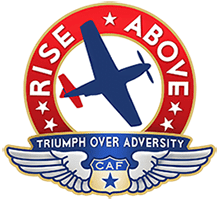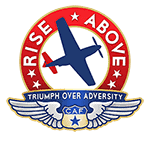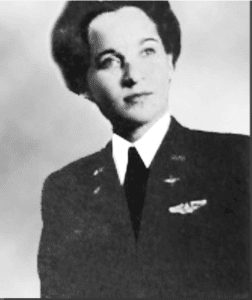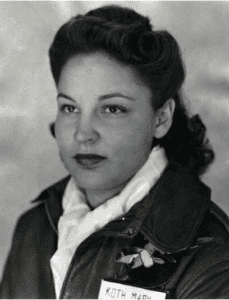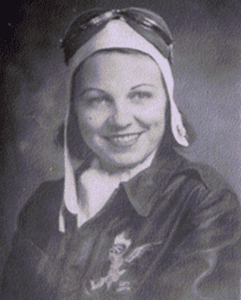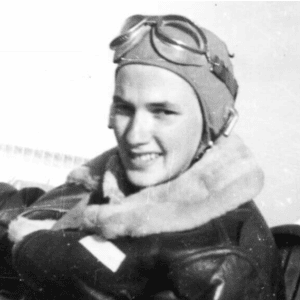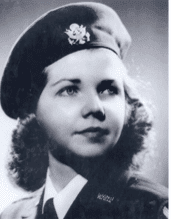 Mary Anna “Marty” Martin Wyall
Mary Anna “Marty” Martin Wyall
January 24, 1922 – March 9, 2017
Class: 44-W-10
Training Location: Avenger Field (Sweetwater, Tex.)
Assigned Bases: Goodfellow Army Air Field (San Angelo, Tex.)
Planes flown: PT-17, BT-13, AT-6, PT-19
“We didn’t care so much about the pay or the recognition, we just wanted to help our country win the war.” – Marty Wyall
By her own recollection, being a WASP was the best thing that happened to Marty Wyall. Wyall graduated from DePauw University in 1943 and joined the WASP program in early 1944. Like many other WASP, Wyall had never been to Texas, and was unsure of what was going to happen during training. When she arrived at Avenger Field in Sweetwater, Texas on a windy day in May, she remembers questioning her own abilities, and thinking she would never be able to fly the large military airplanes.
The WASP experience helped Wyall recognize that through hard work and perseverance, anything was possible.
Wyall originally heard about the WASP program from a magazine article, which said applicants were required to have at least 35 hours of flying time before they could be considered. Wyall earned her hours by paying for private flying lessons while she was at DePauw University studying Bacteriology.
WASP training took several months and involved many aspects. In addition to flight training in many increasingly complex, military airplanes, the WASP also received training in navigation and in the mechanical aspects of each aircraft. Wyall recalls that her training involved a great deal of cross country and night flying. She graduated and earned her coveted silver wings, just two weeks before the WASP program was shut down.
Wyall understood that the fate of the program was uncertain, and their “heaven on earth” would come to a close eventually. Wyall recalled how Gen. Henry ‘Hap’ Arnold, the commander of the Army Air Forces, attended the WASP graduation, and eaten with her and several of her colleagues. Arnold was initially opposed to women flying U.S. military airplanes, but he was very proud of how the WASP program had turned out.
Wyall felt there would be a need to tell the WASP story and started collecting historic materials and WASP memorabilia in 1945. Her collection now resides at Texas Woman’s University in Denton, Texas, serving as the foundation for their official WASP repository.
Wyall was awarded the Congressional Gold Medal in 2010. In 2011, she was inducted into the Women in Aviation International Pioneer Hall of Fame. She died in Fort Wayne on March 9, 2017.
Sources:
Texas Women’s University in Denton, Texas
Wikipedia
Women in Aviation
Depauw University
The Journal Gazette
